Dental Crowns – Los Angeles, CA
Giving Your Smile Added Protection
Dental crowns are some of the most effective methods of treatment for damaged or decayed teeth. At Rancho Park Dental Group, our team of professionals can revitalize smiles and better protect vulnerable teeth using high-quality, custom-made restorations that safeguard against reinfection and future damage. If you or a loved one are suffering from a broken or chipped tooth or have advanced dental decay, call us today to find out if you are a candidate for dental crowns.
Why Choose Rancho Park Dental Group for Dental Crowns?
- One-Visit Restorations Available
- High-Quality Materials Used
- Dental Insurance Welcome
What is a Dental Crown?
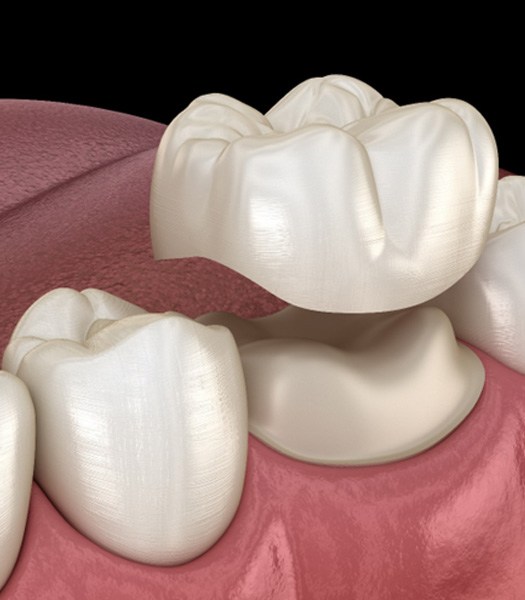
A dental crown is a customized restoration that is also commonly referred to as a “cap.” Designed to fit over the visible portion of a tooth’s structure, it can shield and protect the enamel and its underlying layers from future reinfection or harm.
Dental crowns can be made from a variety of materials including porcelain, ceramic, zirconia, and metal. At Rancho Park Dental Group, we are pleased to provide our patients with CEREC one-visit restorations, making it quicker and easier to repair a damaged smile.
Do I Need Dental Crowns?
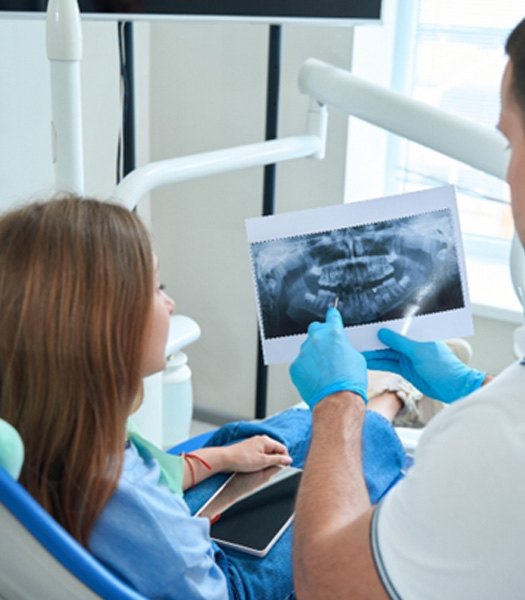
Determining whether you need dental crowns is ultimately up to your dentist. The most common reasons you might be recommended for this type of restorative treatment are:
- You have a severely damaged or decayed tooth that needs protection
- You have a filling that has expanded and is causing damage to the crown
- You recently received a dental implant
- You recently underwent a root canal
- You have multiple cosmetic flaws that you want to hide
- You need a dental bridge to fill in the gaps in your smile
The Dental Crown Process
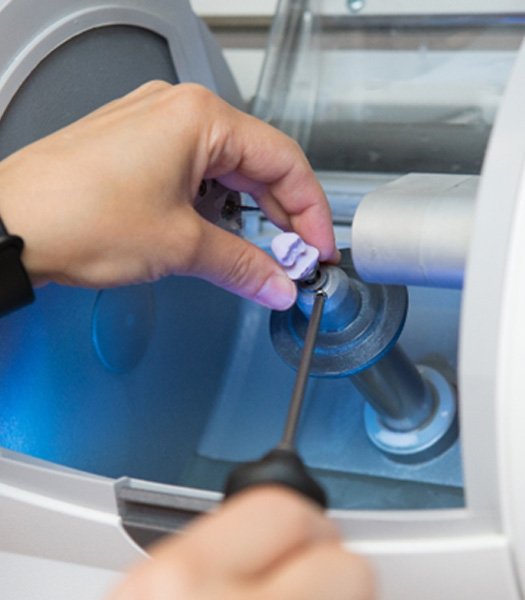
When learning that you require a dental crown to repair your smile, there are two options: the traditional way or CEREC. No matter which method you choose, the process begins the same way. Your dentist will begin by cleaning out the decayed or damaged areas of your tooth. Once completed, they will fill in the areas with composite resin, allowing it to harden before altering the size of your tooth. This will ensure that the crown fits properly over the tooth when placed.
If you opt for a traditional method of placement, we will take impressions of your teeth and have them sent to a local lab where technicians will create your customized crown. While waiting for the finalized restoration, you will be required to wear a temporary. After a few weeks, you will return to have your temporary removed and your permanent crown secured into place.
If you prefer the CEREC method, we will take impressions of your mouth after the tooth is altered and send the three-dimensional model to our system, which will allow us to modify it beforehand. Once satisfied with the design, we will then send the image to our in-house milling unit and place a single block of ceramic in the machine. While you wait, your customized dental crown will be created using CEREC technology. In no time at all, we will have the tooth made and put into place so that you can leave the same day with a new and improved smile.
The Benefits of Getting a Dental Crown
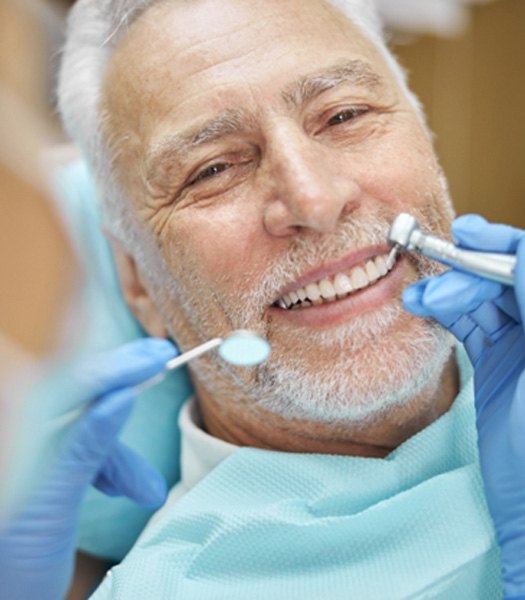
Choosing to move forward with a dental crown is a positive and worthwhile investment. Here’s why:
- Dental crowns can be produced quicker when using CEREC technology
- They adequately and successfully protect teeth from future harm or reinfection
- They allow for improved functionality so that you can eat, speak, and smile with greater ease
- They do not require a temporary if you choose CEREC crowns
- They are easy to maintain and look beautiful when placed
- They are capable of lasting 10-15 years as long as you take proper care of your smile
Understanding the Cost of Dental Crowns
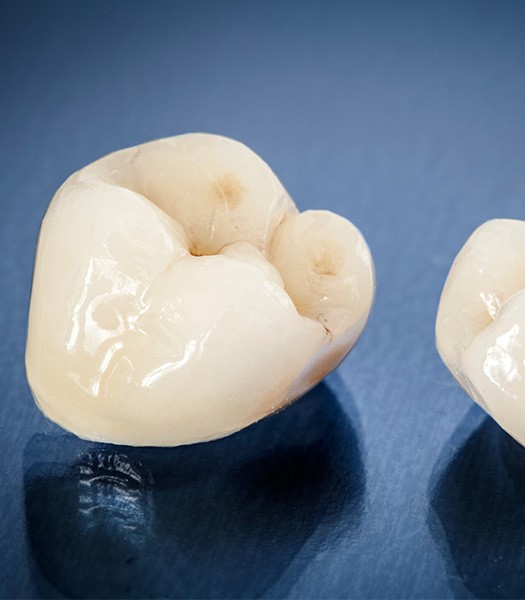
The cost of a dental crown can depend on a few factors. When you visit us for your restorative consultation, we will be able to share some specific numbers. We will also help you understand your payment options, including insurance and convenient low-interest financing. We want to make the financial aspect of your care as easy as possible!
Factors that Affect the Cost of Dental Crowns
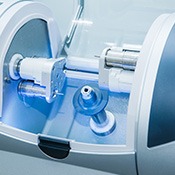
Some factors that can influence the cost of dental crowns include:
- Preparatory procedures. If you require root canal therapy or another procedure prior to receiving a crown, it can increase the total cost of your care.
- Crowns can be made of various materials, including different types of metals, ceramic, and more. Each material has its own cost. In our practice, we favor the use of ceramic and E-Max crowns (E-Max is a specific type of ceramic) because of their durability and pleasing aesthetics.
- The method used to make the crown. In our office, we can provide same-day CEREC crowns, or we can coordinate with a third-party dental lab. The cost associated with each method can vary.
Please note that cheap crowns are not always better! You want to invest in a high-quality restoration that will look good, function well, and not interfere with the mechanics of your bite.
Does Dental Insurance Cover Dental Crowns?

In most cases, yes, dental insurance does cover dental crowns. They are usually classified as a major treatment, so around 50% of their cost may be covered, up to the amount of your plan’s annual maximum. Our team welcomes insurance, and we are even in-network with several popular insurance companies. We will do all we can to help you understand how your benefits apply and get the greatest value out of them.
Other Options for Making Dental Crowns Affordable

Outside of insurance, there is another option that might make it easier to afford your dental crown: financing. Our team partners with CareCredit, a third-party company that provides low-interest and no-interest payment plans for medical and dental services. The application process is fast, and most patients are deemed eligible for a plan that fits their budget.
Would you like to learn more about the cost of dental crowns? Our team will be happy to provide price estimates and answer your questions. Contact our Los Angeles team today to get started on restoring your smile.
Dental Crowns FAQs
Are Dental Crowns Permanent?
Technically, crowns aren’t permanent; they need replacement and repair over time. You can, though, count on them as a long-term solution. A crown can last anywhere from five to 15 years with proper care. Therefore, you should maintain it with proper hygiene, regular checkups, and other good habits.
On the other hand, crown placement has irreversible effects. The process removes bits of your enamel, which doesn’t grow back once it’s lost. The affected tooth will thus always need a crown in the future. Fortunately, the cap compensates for lost enamel by protecting the underlying tooth from more damage.
How Do You Know When a Dental Crown Needs to Be Replaced?
In all honesty, the best way to confirm if a crown needs replacement is to get X-rays. These images can show whether the prosthetic is at risk of failure.
Still, there are warning signs that a crown has reached the end of its life. You should thus keep an eye out for the following:
- Pain – If your crowned tooth hurts, it may have underlying decay or a cavity. In such cases, the dentist will remove the crown to treat the decayed area.
- Instability -A crown that’s grown loose is likely to fall out. If you notice your own feeling that way, you should call your dentist at once.
- A Notably Worse Appearance – A chipped or discolored crown can hurt your self-confidence. That alone is enough reason to replace it.
Does It Hurt to Get a Dental Crown?
Put simply, no — dental crown treatment doesn’t hurt. As with filling procedures, your dentist will numb the tooth beforehand so it can’t feel pain. All it takes is a topical anesthetic, though nervous patients may benefit from adding sedation to the mix.
Granted, you may feel some discomfort at other points. While a dentist will numb your tooth for the prep work, they may not use anesthetic for the final placement. (You should thus tell your practice ahead of time whether you’d like to be numbed.) Similarly, your pearly white may be a tad sensitive in the days after the crown is placed. Luckily, this effect fades quickly and can be managed with common pain relievers.
Do Dental Crowns Feel Natural?
You may fear that your crown will always cause odd sensations. Well, you needn’t do so: the prosthetic should start to feel natural just days after you get it.
You see, dentists work to ensure your time with a crown is smooth. Labs make the cap from durable materials, so it won’t feel strange to chew food with it. Likewise, the dentist reshapes your tooth before placement so the crown fits well in your mouth. Even the prosthetic is custom-made, a feature that keeps it from feeling awkward or noticeable.
